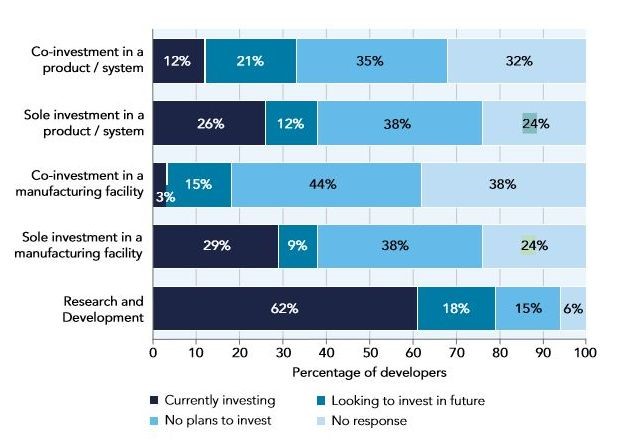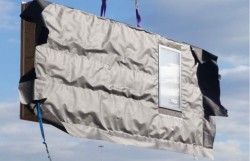There are "early signs" that the housebuilding and the wider construction sector are starting to adopt modern methods of construction (MMC) after years of being urged to do so.
That's according to Mark Farmer, who published his review of UK construction's labour model Modernise or Die two years ago.
Farmer made the comments as he introduced a new report into the use of MMC, commissioned by NHBC and entitled Who's Doing What. It found a "striking" level of interest in volumetric modules among the businesses it surveyed, which were asked to consider their housing output, their current and future housing output using MMC, MMC systems being used, how and why they had invested in MMC, and the barriers to its use.
Farmer said: "The drivers for change appear to be varied but there seems to be a common desire for improved predictability in terms of cost, time and quality.
"The construction industry is entering an unprecedented period of risk, driven by an ageing workforce, societal changes increasingly acting against construction in the race for young talent, and the added geo-political pressures of Brexit impacting labour security. More businesses are starting to recognise that the basic production model for new homes needs to change."
A total of 60% of respondents to the report, produced by Farmer's firm Cast Consultancy, said they were already using volumetric modules or were planning to use them in the future. There was also the same level of interest in the use of panelised systems, mostly timber-framed or steel-framed.
The key drives for the uptake of MMC were quality, improved efficiency, accelerated delivery and increased productivity, the report found.
However, there were concerns among house builders and developers that procurement and continuity of supply could become difficult due to supply-side restraint. As a result, 29% of the developers surveyed are already making a sole investment in a manufacturing facility, with another 9% considering it in the future.
Meanwhile, 62% were committing funds to research and development to enhance technologies further.
 "Notwithstanding the range of systems being employed, the mindset for change is in its infancy and there is still much work to be done in developing the procurement models associated with offsite manufacturing systems that don't lend themselves to a traditional form of procurement.
"Notwithstanding the range of systems being employed, the mindset for change is in its infancy and there is still much work to be done in developing the procurement models associated with offsite manufacturing systems that don't lend themselves to a traditional form of procurement.
"There remains a desire across the industry to demonstrate confidence in products and systems through internal pilot testing before employing such technologies on a larger scale," the report concluded.
Neil Smith, NHBC head of standards, innovation and research, said: "The study explores the current levels of interest in MMC from a range of developers of different sizes and types and provides a useful benchmark to gauge future trends and patterns in the uptake of innovative forms of construction.
"Overall, the findings demonstrate a clear commitment by developers to delivering high-quality new homes through the adoption of MMC. As this confidence in MMC grows and more technologies become proven, we will begin to realise the full potential for MMC to build more, and higher-quality, homes."
Farmer added: "We're delighted to see NHBC Foundation taking a lead here in raising industry awareness of industry's gradual move towards embracing MMC. This report highlights how pre-manufacturing has the potential to drive not just productivity and profit - but quality and efficiency.
"What is also clear is that developers are approaching the use of MMC in different ways. We expect that pre-manufacturing will continue be used in a variety of combinations and using different materials and systems."
Original link - Construction Manager Magazine









